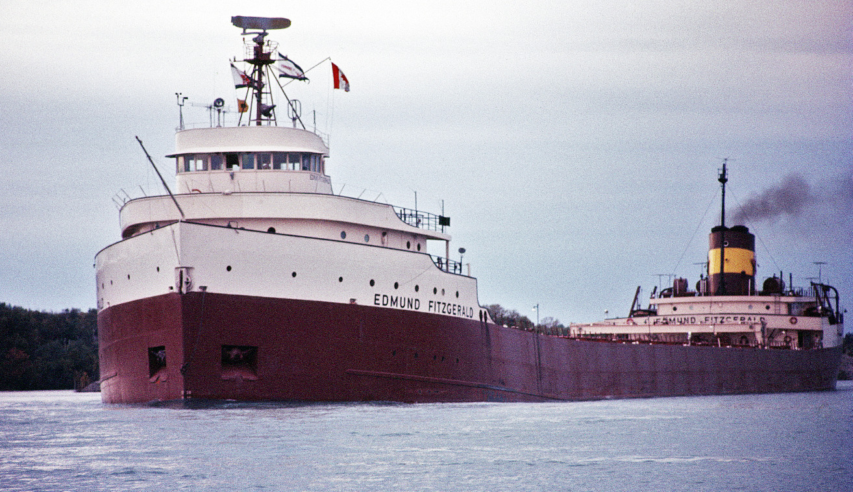Mark Steyn devotes a column to the work of Canadian singer/songwriter Gordon Lightfoot, particularly his very well-known ballad on the loss of the Edmund Fitzgerald on Lake Superior in 1975:
When it comes to trains and boats and planes, Gordon Lightfoot has hymned all three, but it’s the middle mode of transportation that produced the song he’s proudest of:
The ship was the pride Of the American side
Coming back from some mill in Wisconsin
As the big freighters go
It was bigger than most
With a crew and good captain well seasoned…In November 1975 Lightfoot chanced to be reading Newsweek‘s account of the sinking of a Great Lakes freighter in Canadian waters. He’s a slow and painstaking writer, which is one reason he’s given up songwriting – because it takes too much time away from his grandkids. But that day forty-three years ago the story literally struck a chord, and he found himself scribbling away, very quickly:
The legend lives on From the Chippewa on down
Of the big lake they called Gitche Gumee
The lake, it is said Never gives up her dead
When the skies of November turn gloomy…“Gitche gumee” is Ojibwe for “great sea” – ie, Lake Superior – as you’ll know if you’ve read your Longfellow, which I’m not sure anyone does these days. Evidently Hiawatha was on the curriculum back east across Lake Huron in young Gordy’s Orillia schoolhouse. The Gitche Gumee reference may be why, when I first heard “The Wreck of the Edmund Fitzgerald“, I assumed its subject had sunk long before the song was written. In fact, it sank on November 10th 1975 – just a few days before Lightfoot wrote the number. When she’d launched in 1958, the Edmund Fitzgerald was the largest ship on the Great Lakes, and, when she passed through the Soo Locks between Lakes Superior and Huron, her size always drew a crowd and her captain was always happy to entertain them with a running commentary over the loudspeakers about her history and many voyages. For seventeen years she ferried taconite ore from Minnesota to the iron works of Detroit, Toledo and the other Great Lakes ports …until one November evening of severe winds and 35-feet waves:
The wind in the wires
Made a tattle-tale sound
And a wave broke over the railin’
And every man knew
As the captain did too
‘Twas the witch of November come stealin’…And about seventeen miles from Whitefish Bay the Edmund Fitzgerald sank, with the loss of all 29 lives. It remains the largest ship ever wrecked on the Great Lakes, launched in 1958 to take advantage of the new St Lawrence Seaway (to be opened by the Queen and President Eisenhower on an inaugural voyage by the Royal Yacht Britannia the following year) and specifically constructed to be only a foot less than the maximum length permitted. Edmund Fitzgerald was the then chairman of Northwestern Mutual Life Insurance of Milwaukee, and, as far as I’m aware, the only insurance company executive to be immortalized in a song title. Fifteen thousand people showed up for the ship’s launch at River Rouge, Michigan. It took Mrs Fitzgerald three attempts to shatter the champers against the bow, and then there was a further half-hour’s delay as the shipyard workers tried to loosen the keel blocks. After which the ship flopped into the water, crashed against a pier, and sent up a huge wave to douse the crowd. One spectator promptly had a heart attack and died.
And then came seventeen happy years. Even in the twenty-first century, there is something especially awful and sobering about death at sea: it is in a certain sense a reminder of the fragility of security and modernity. Whenever I’m in, for example, St Pierre et Miquelon, the last remaining territory of French North America, I stop by the monument aux marins disparus, sculpted in 1964 and to which many names have been added in the years since – because a ship put out, and somewhere on the horizon the great primal forces rose up from the depths and snapped it in two like a matchstick.




